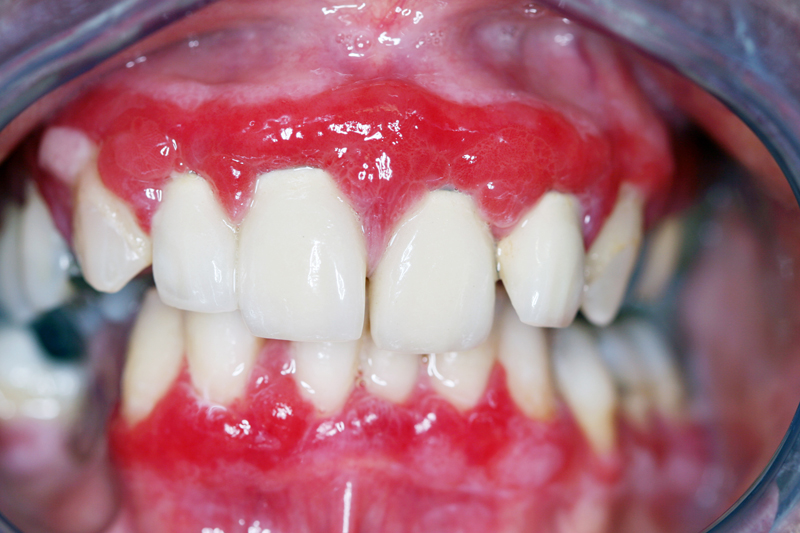Mucous Membrane Pemphigoid: Symptoms, Causes, Treatment
What are the symptoms of mucous membrane pemphigoid?
Mucous membrane pemphigoid (MMP), also known as cicatricial pemphigoid, is a rare autoimmune disorder that affects mucous membranes, such as those in the mouth, eyes, nose, throat, genitals, and anus. The symptoms of MMP can vary depending on which mucous membranes are affected, but common symptoms may include:
- Mouth: Painful sores (ulcers) in the mouth, often on the gums, tongue, or inside of the cheeks. These sores can make eating and talking difficult.
- Eyes: Redness, irritation, and dryness of the eyes (conjunctivitis), as well as sensitivity to light (photophobia). In severe cases, scarring of the eyelids can occur.
- Nose: Nasal congestion, crusting, and bleeding. In some cases, the nasal septum can be affected, leading to a perforation.
- Throat: Sore throat, difficulty swallowing (dysphagia), and hoarseness.
- Genitals and Anus: Involvement of the genital or anal mucous membranes can cause pain, itching, and scarring.
- Skin: In some cases, blistering and scarring of the skin may occur, particularly in areas prone to trauma or friction.
- Other Symptoms: MMP can also affect other mucous membranes in the body, such as those in the esophagus, larynx, and respiratory tract, leading to various symptoms depending on the location.
MMP is a chronic condition that tends to progress slowly over time. It can cause scarring and damage to the affected mucous membranes, which can lead to complications such as vision loss (if the eyes are affected) or difficulty eating and speaking (if the mouth and throat are affected). Early diagnosis and treatment can help manage symptoms and reduce the risk of complications. If you suspect you have MMP or are experiencing symptoms, it’s important to see a healthcare provider for evaluation and proper diagnosis.
What are the causes of mucous membrane pemphigoid?
Mucous membrane pemphigoid (MMP) is an autoimmune disorder, which means that the immune system mistakenly attacks healthy tissues in the body. In the case of MMP, the immune system targets the proteins that help anchor the mucous membranes to underlying tissues. The exact cause of this autoimmune response is not fully understood, but several factors may contribute to the development of MMP, including:
- Genetics: There may be a genetic predisposition to developing autoimmune disorders like MMP. Certain genetic variations may increase the risk of developing the condition.
- Immune System Dysfunction: In people with MMP, the immune system produces antibodies that target proteins in the mucous membranes, leading to inflammation and damage. It is unclear why the immune system becomes dysregulated in this way.
- Environmental Triggers: Exposure to certain environmental factors, such as infections, medications, or chemicals, may trigger the immune system to attack the mucous membranes in susceptible individuals. However, specific triggers for MMP have not been clearly identified.
- Age and Gender: MMP is more common in older adults, particularly those over 60 years of age. Women are also more likely to develop MMP than men.
- Other Autoimmune Conditions: People with other autoimmune disorders, such as rheumatoid arthritis or lupus, may have a higher risk of developing MMP, suggesting a shared underlying mechanism in autoimmune diseases.
It’s important to note that while these factors may contribute to the development of MMP, the condition is complex, and the exact cause can vary from person to person. Further research is needed to fully understand the underlying mechanisms of MMP and develop more effective treatments.
What is the treatment for mucous membrane pemphigoid?
The treatment for mucous membrane pemphigoid (MMP) aims to reduce inflammation, control symptoms, and prevent scarring and complications. Treatment is typically individualized based on the extent and severity of the disease and may involve a combination of medications and other interventions. Here are some common treatment options for MMP:
- Topical Corticosteroids: These are often the first-line treatment for mild to moderate MMP. They help reduce inflammation and control symptoms. Steroid mouthwashes or gels may be used for oral lesions, and steroid eye drops or ointments may be used for ocular involvement.
- Systemic Corticosteroids: For more severe cases of MMP, oral or intravenous corticosteroids may be prescribed to control inflammation. These medications are typically used for a limited time due to the risk of side effects.
- Immunosuppressive Medications: Medications that suppress the immune system, such as azathioprine, mycophenolate mofetil, or methotrexate, may be used in combination with corticosteroids to help control the immune response and reduce inflammation.
- Biologic Therapies: In some cases, biologic medications, such as rituximab, may be used to target specific components of the immune system involved in MMP.
- Topical or Systemic Antimicrobials: These may be used if there is a secondary bacterial infection present in the affected mucous membranes.
- Ocular Lubricants: For individuals with ocular involvement, artificial tears or lubricating ointments can help relieve dryness and irritation.
- Surgical Interventions: In cases where scarring has caused significant damage, surgical procedures may be necessary to repair the affected tissues. This may include procedures to correct eyelid deformities or reconstruct the oral or nasal mucosa.
- Dental Care: Good oral hygiene practices and regular dental check-ups are important to prevent complications such as dental caries and periodontal disease, which can be exacerbated by MMP.
It’s important for individuals with MMP to receive regular monitoring and follow-up care from a healthcare provider familiar with the condition. Treatment may need to be adjusted over time based on the individual’s response and disease progression.




